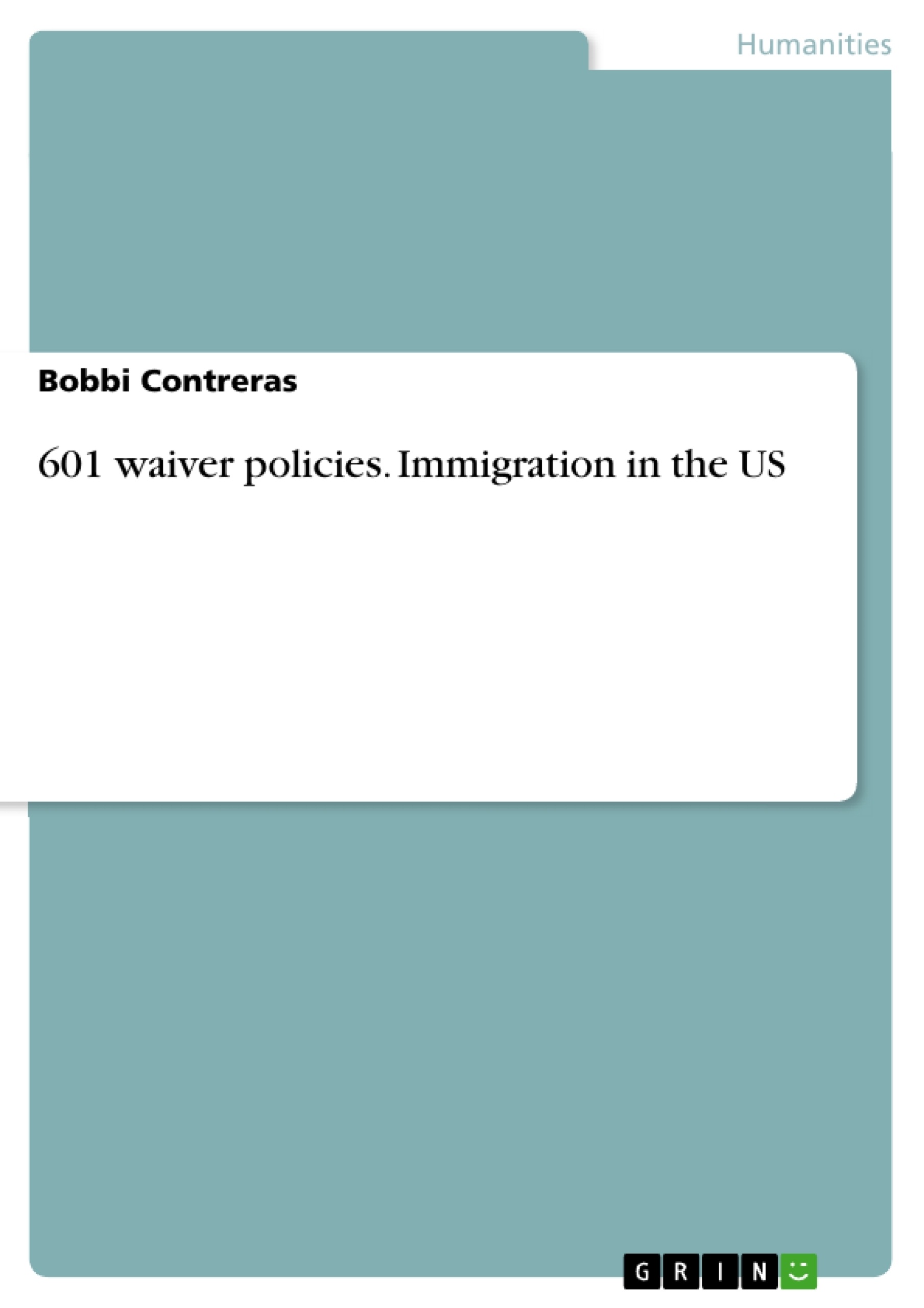In an enforcement-only immigration system, the 601 and 601a waiver policies are a light in the dark for those facing deportation. These policies allow immigrants to return from their native country after deportation or voluntary departure if they meet the criteria of the policies and if their absence would or does pose an “extreme hardship” to their US citizen family members.
While these programs offer hope to the deported and their families, only a fraction of those separated by deportation qualify and are approved for this relief. While the goal of the policy is to help families, the immigration system itself is flawed in the way it separates families through deportation, creating a need for such a program. The introduction of the bill HR 2095 provides hope for an expansion of the 601 waiver to include and assist more families.
Inhaltsverzeichnis (Table of Contents)
- Family Support and Responsibilities
- Family Membership and Stability
- Family Involvement and Interdependence
- Family Partnership and Empowerment
- Family Diversity
- Support of Vulnerable Families
- HR 2095
Zielsetzung und Themenschwerpunkte (Objectives and Key Themes)
This paper examines the 601 and 601a waivers, which are waivers of inadmissibility for certain immigrants facing deportation. The paper analyzes these waivers through the lens of family dynamics, highlighting the importance of family support, membership, involvement, partnership, diversity, and the protection of vulnerable families.
- The impact of the 601 and 601a waivers on family support and responsibilities
- The role of family membership and stability in the waiver process
- The significance of family involvement and interdependence in navigating the immigration system
- The implications of the waivers for family partnership and empowerment
- The recognition of family diversity and the need for support for vulnerable families
Zusammenfassung der Kapitel (Chapter Summaries)
The paper begins by introducing the 601 and 601a waivers, highlighting their significance in an enforcement-only immigration system. It then delves into the requirement of "extreme hardship" for the waivers, showcasing the emphasis on family support and the immigrant's responsibility to their US citizen family members. The paper explores the financial burdens associated with the waiver process, including filing fees, travel costs, and medical exams. It also examines the requirement of financial stability for the petitioner and the possibility of using a cosponsor to meet income requirements.
The paper then moves on to discuss the impact of the 601 waiver policy on family membership and stability. It highlights the incentive to marry in order to qualify for the waiver, suggesting a potential disincentive for separation or divorce. The paper concludes by exploring the implications of the waivers for family involvement, partnership, empowerment, diversity, and the support of vulnerable families.
Schlüsselwörter (Keywords)
The key themes explored in this paper include immigration, deportation, waiver, hardship, family support, family membership, family involvement, family partnership, family diversity, and vulnerable families.
What are the 601 and 601a waivers in US immigration?
These are waivers of inadmissibility that allow certain immigrants facing deportation to return to or stay in the US if their absence causes "extreme hardship" to US citizen family members.
What does "extreme hardship" mean in the waiver process?
It refers to significant financial, emotional, or medical suffering that US citizen family members would experience if the immigrant is deported or denied entry.
What financial burdens are associated with these waivers?
Applicants face costs such as filing fees, legal expenses, travel costs to their native country, and required medical examinations.
How do these policies affect family stability?
While the waivers aim to keep families together, the requirement of family membership can create an incentive to marry and a disincentive for separation or divorce.
What is HR 2095 and why is it important?
HR 2095 is a bill that provides hope for expanding the 601 waiver program to assist more families and reduce the negative impact of deportation on family units.



